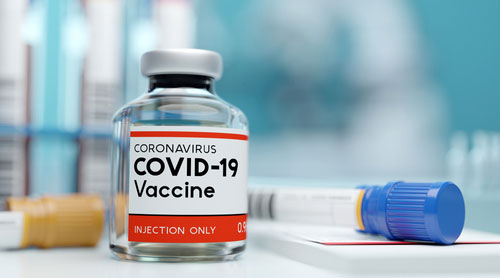The neurological illness suffered by a clinical trial volunteer in Chennai after receiving the AstraZeneca-Oxford candidate vaccine was not related to the vaccine, senior health officials indicated on Tuesday, making public for the first time the outcome of regulatory scrutiny.
The officials said the Central Drugs Standard Control Organisation (CDSCO), the apex regulatory agency for drugs and vaccines, and other bodies had assessed the serious adverse event that occurred in October and determined that there was no need to halt the clinical trial.
“The assessment criteria is objective and scientific — the initial causality assessment finding did not necessitate stoppage of the clinical trial,” said Balram Bhargava, director-general of the Indian Council of Medical Research, the country’s apex health research agency tracking the vaccine trials.
The volunteer has sought Rs 5 crore compensation in a notice sent to the Pune-based Serum Institute of India, which is producing the vaccine and conducting the trial. Serum in turn has threatened to claim Rs 100 crore in damages from the volunteer for spreading malicious information about the vaccine.
The dispute between the volunteer and the company has emerged amid what some health researchers have described as the lack of transparency by the CDSCO, the agency that also regulates clinical trials.
The CDSCO has remained silent through the six weeks since the volunteer reported the adverse event, prompting health rights advocates to question why the trial had not been halted or why the organisation had not made public the outcome of the investigations.
Union health secretary Rajesh Bhushan said serious adverse events in clinical trials were probed by institutional ethics committees at the trial sites and by a data safety monitoring board that has domain knowledge and experts independent of the government.
Under trial protocol requirements, the institutional ethics committee in Chennai, the trial site, had submitted its findings to the CDSCO for scrutiny by the regulator to determine whether the adverse event was related to the vaccine.
The health officials did not explain why the CDSCO chose to remain silent about the investigation. But doctors familiar with clinical trial protocols said investigations into serious adverse events were likely to look into the medical history of the volunteers and were not made public to safeguard privacy.
However, the health officials said the government had “nothing to do” with Serum’s statement threatening to seek Rs 100 crore damages from the volunteer.
Health secretary Bhushan said the statement needed to be viewed in the context of the global race to develop a vaccine against the coronavirus disease, underlining that it typically takes eight to 10 years to generate a vaccine against a new infectious agent.
“Given the size and impact of the pandemic, we’re trying to compress the timline of eight to 10 years into 16 months to 18 months,” Bhushan said. “Multiple vaccine players within the country and outside the country are trying to bring about their vaccines within this compressed timeline.”
“When you have this context, there is a potential that commercial interests would dictate certain strategic actions on the part of commercial entities,” Bhushan said, responding to a query on Serum’s statement. “Governments of the day have nothing to do with it.”
However, he added, it is the responsibility of the Centre and state governments to ensure that people are made aware of the safety and efficacy aspects of vaccines and counter all disinformation.











